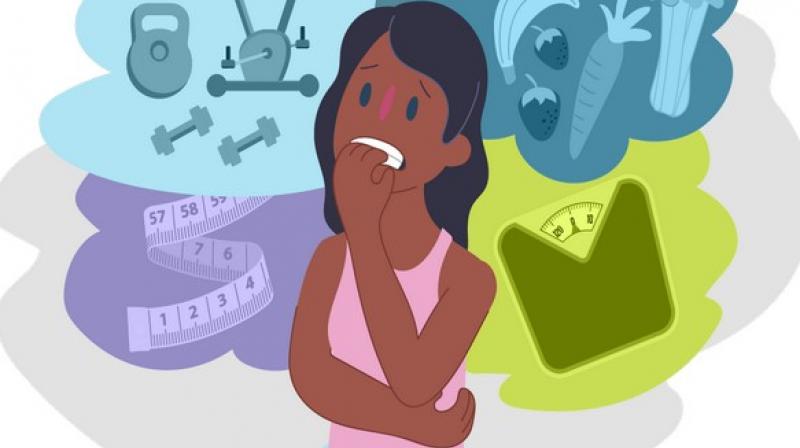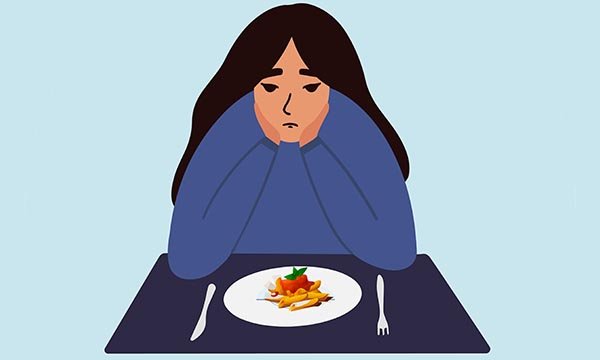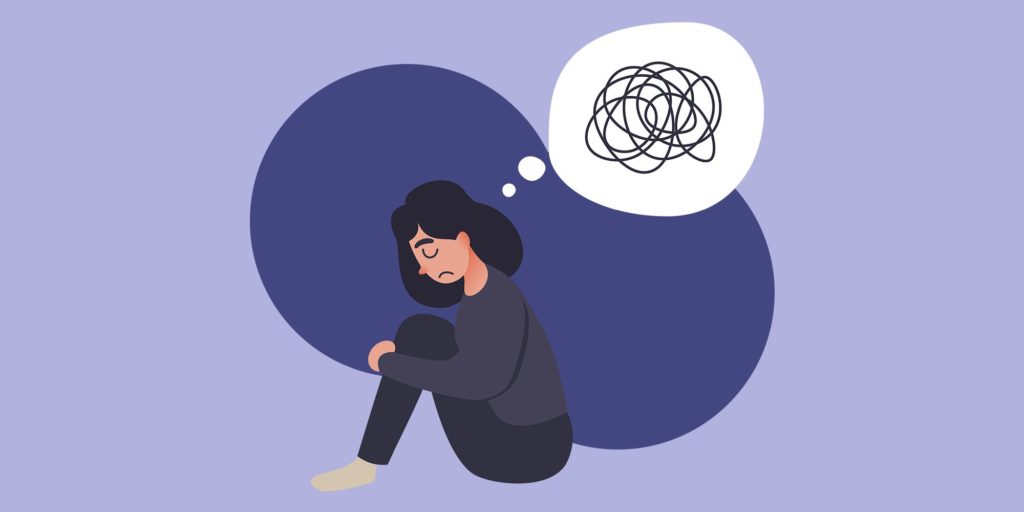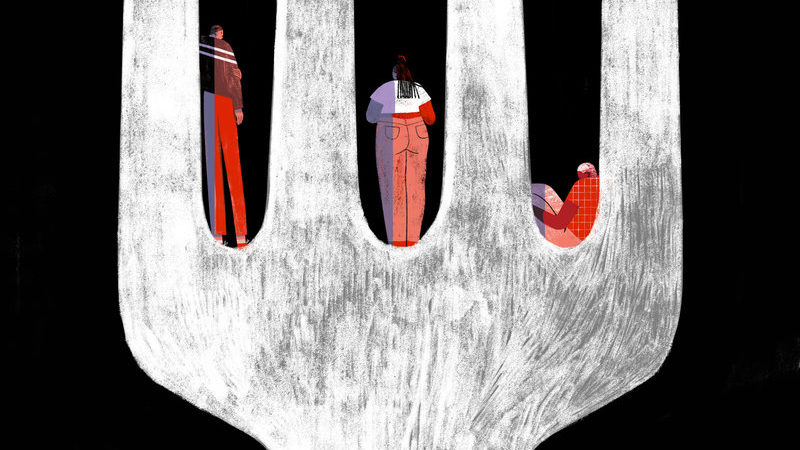I will be talking about three types, Anorexia nervosa, Bulimia nervosa, and Binge Eating Disorder.
Anorexia nervosa:
People struggling with anorexia tend to see themselves as overweight, no matter how thin they are or become. They can weigh themselves repeatedly and will severely restrict their food intake or stop eating entirely. This can lead to death from starvation or s*icide.
For anorexia, there are short-term and long-term symptoms short term ones would be…
- Restricted eating
- Extremely thin (or emazation)
- Neverending need to feel skinny and unwilling to maintain a healthy/normal body weight
- Intense fear of gaining weight
- Extremely distorted image of their body
- Heavily influenced by perceptions of body weight and shape
- Denial of low body weight
Some long term symptoms are…

- The thinning of bones (osteopenia → osteoporosis)
- Mild anemia, muscle wasting and weakness
- Drop in internal body temperature
- Lethargy, sluggishness and/or constant feeling of tired
- Brittle hair and nails
- Dry and yellowish skin
- Lanugo (growth of fine hair all over the body)
- Severe constipation
- Low blood pressure
- Slowed breathing and pulse
- Damage to structure and function of the heart or multi-organ failure
- Brain damage
- Possible alterations to genes
- Loss of infertility and irregular, or stopping of, flow
Bulimia nervosa:

Episodes of eating unusually large amounts of food, there is typically a lack of control over these episodes. They then feel guilty and to compensate for this, they turn to unhealthy behaviors to compensate. Laxatives, fasting, excessive exercise and/or vomiting are the main habits that are turned to.
People with bulimia tend to look and act very normal, unlike anorexia or binge-eating, they look like they have a healthy weight and don’t typically get severely underweight.
Symptoms for bulimia include…
- Chronically inflamed and sore throat
- Swollen salivary glands in the neck and jaw
- The locking of one’s jaw
- Worn tooth enamel and increasingly sensitive/decaying teeth as a result of exposure to stomach acid (or bile)
- Acid reflux disorder and/or other gastrointestinal issues
- Intestinal distress and irritation from laxative abuse
- Severe dehydration from purging of fluids
- Electrolyte imbalance which can lead to a heart attack
Binge-Eating Disorder
Loss of control while eating and eating in general, which leads to overeating. Unlike bulimia, there are no habits that follow this behavior up. As a result, these people tend to be very overweight or obese. This was the most common ED in the US.
Symptoms for Binge-Eating disorder include…
- Eating large amounts of food in short a short amount of time
- Continuing to eat when one is stuffed or not hungry
- Going until uncomfortably full
- Eating unusually fast during binge episodes
- Preferring to eat alone or in secret to avoid embarrassment
- Typically hides many snacks in their room
- Feels distressed, ashamed, embarrassed or guilty about eating habits
- Frequently dieting (possibly) without weight loss
NEDA:

(National Eating Disorder Association)
NEDA (National Eating Disorder Awareness) is a group that is made to help those with eating disorders, those developing them and their families. They have a hotline, which is at the top and bottom of this article as well as a crisis support textline. (Text ‘NEDA’ to 741741).
The hotline is toll-free and up from the hours of 9:00 AM – 9:00 PM (ET) Mon-Thurs; and 9:00 AM to 5:00 PM (ET) Fri. The textline is open 24/7.
Again, if you or someone you know is struggling with an eating disorder contact a doctor or the hotline as soon as possible.
(1-800-931-2237)
NEDA LINE
featured image credit: NPR
My six pages of notes and sources, enjoy
